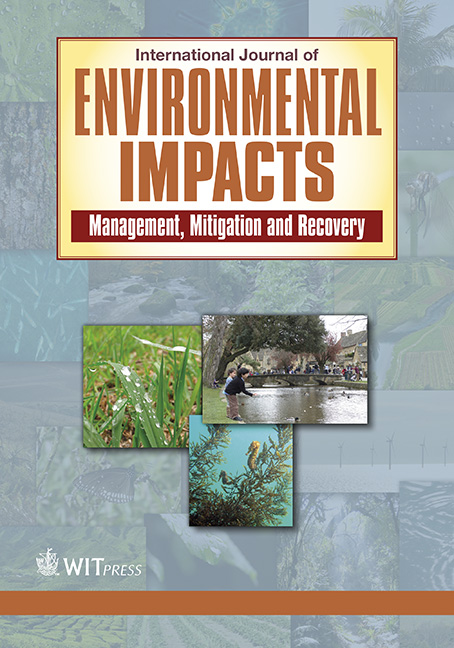The future? Let’s first write a narrative of our present
Price
Free (open access)
Volume
Volume 3 (2020), Issue 3
Pages
9
Page Range
238 - 247
Paper DOI
10.2495/EI-V3-N3-238-247
Copyright
WIT Press
Author(s)
Nasrin Sterling & Jianjun Xu
Abstract
Ecosystem degradation and unsustainable use of natural resources, coupled with climate change and other environmental stressors, are putting ecosystem services under threat. Also at risk is the health of citizens who live in damaged environments with polluted air, water and soil. The related dangers to health should give particular cause for concern, especially since most 21st-century health care initiatives involve little spending on prevention and health protection. The rapid rise of China has created new challenges as political-economic drivers (urbanisation, industrialisation, mechanisation, globalisation and modernisation) multiply environmental stressors and caused mounting health problems. While there is a trade-off between ecosystem benefits and economic gain, it is essential to note that a healthy society is better able to deal with challenges as they emerge. There is a need for more investment in the monitoring of environmental stressors and climate change. This research paper addresses some of the health issues arising from environmental changes that prejudice the health and wellbeing of China’s people. Along with China’s anti-poverty measures, the situation requires multi-sectoral collaboration on multilevels within the health system. It needs to focus on disease prevention, underlying health prob- lems, and contributing elements driven by social-political-economic factors. Such features of China’s society and families as rapid population aging, the phenomenon of ‘three generations – one roof’ (elderly people, their children and grandchildren) as well as migration (rural–urban, urban–urban) need to be considered. The global challenge of the current COVID-19 pandemic is a wake-up call showing the need to pay more attention to the complexity of the system. There is a need to be conscious that the state of the ecosystem can change ‘unexpectedly’ and ‘unannounced’ in response to environmental change, causing ‘undesirable’ loss of ecological and economic resources and threatening the most basic need of the present generation, ‘food and shelter’ security.
Keywords
biodiversity, climate change, COVID-19 pandemic, ecosystem services, environmental health effect, food and shelter security, Sustainable Development Goals, system approach, three generations – one roof, trade-offs.




